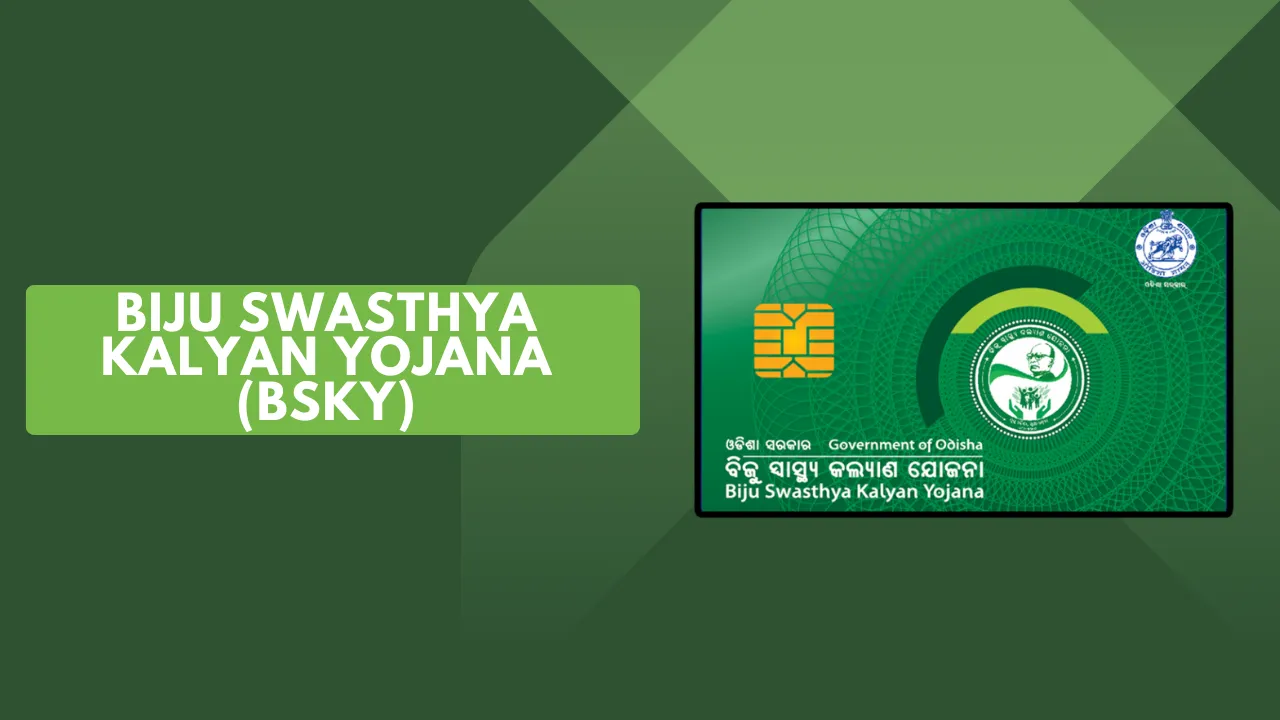Biju Swasthya Kalyan Yojana (BSKY)
Biju Swasthya Kalyan Yojana (BSKY) was introduced by the Government of Odisha in 2018, with the primary aim of establishing a comprehensive healthcare network across the state, particularly for the economically disadvantaged sections of the population. Spearheaded by Chief Minister Naveen Patnaik, this initiative is designed to enhance the overall health infrastructure of the state.
Key Features of Biju Swasthya Kalyan Yojana (BSKY)
- Government Financing and Authorization: Implemented and funded by the Government of Odisha, residents enrolled in Biju Swasthya Kalyan Yojana are safeguarded against financial burdens related to medical expenses.
- Universal Health Coverage: The scheme not only covers medical treatments for enrolled residents but also supports medical expenses for treatments conducted at sub-central public healthcare centers in any district.
- Health Insurance for Cardholders: Every family under the scheme is eligible for a health insurance plan, with a coverage of Rs. 5 lakhs from the state government. Female members receive an extended cover of Rs. 7 lakhs.
- Medical Treatments: Biju Swasthya Kalyan Yojana provides financial assistance for 4,036 medical treatment packages, including cancer, kidney ailments, and heart diseases.
- Number of Surgeries: The scheme covers approximately 255 operative procedures.
- Drop Back Assistance: A new scheme designed for pregnant women and newborns, providing Rs. 500 for their commute back home after delivery.
- Indemnity Assistance: The scheme extends support for secondary and tertiary treatments for family members.
- Coverage: Benefiting 70 lakh families in Odisha, encompassing over 3.5 crore people.
- Integration with Biju Krushak Kalyan Yojana (BKKY): Existing applicants of Biju Krushak Kalyan Yojana are automatically integrated into BKKY.
- Collaboration between Private and Government Medical Institutes: Plans to unify all government and private medical centers for efficient and speedy treatments.
- Travel Expenses: Financial assistance for medical treatments outside the state, including a maximum commute grant of Rs. 2,000, transferred to the cardholders’ bank accounts.
- Empanelled List of Hospitals: Collaboration with an extensive network of hospitals, both within and outside the state, ensuring access to specialized treatments.
Benefits of Biju Swasthya Kalyan Yojana (BSKY)
- Free Healthcare Services: All health services are provided free of cost, including drugs, diagnostics, dialysis, cancer chemotherapy, OT services, ICU services, and in-patient admission at government health institutions up to the district headquarters hospital level.
- Additional Facility for Eligible Families: Families with BSKY, BKKY card, RSBY card, BPL card, or AAY card, along with low-income certificate holders, can avail of cashless treatment beyond the District Headquarters Hospital level at public healthcare facilities and 208 empanelled private hospitals.
- Cashless Healthcare Assistance: The scheme ensures cashless healthcare assistance for enrolled individuals.
- Rs. 5 Lakhs Annual Health Coverage: Every family is entitled to an annual health coverage of Rs. 5 lakhs, with an additional Rs. 7 lakhs for women members of the family.
Eligibility Criteria for Biju Swasthya Kalyan Yojana (BSKY)
Income Criteria for BSKY Enrollment:
- Residents of Odisha enrolled under BSKY must have an annual income below Rs. 50,000 in rural areas and below Rs. 60,000 in urban areas to be eligible for the scheme.
Documents Required for Biju Swasthya Kalyan Yojana (BSKY):
To avail the health coverage benefits of Rs. 5 lakhs per annum per family and Rs. 7 lakhs per annum for women members of the family under Biju Swasthya Kalyan Yojana, individuals must present the following documents:
Existing Cards: Existing Biju Krushak Kalyan Yojana (Stream I & II), Rashtriya Swasthya Bima Yojana, BPL, or AAY cards must be produced at the empanelled hospital.
Income Certificate: For low-income families without the mentioned cards, a valid income certificate is required.
The income certificate should indicate an annual income below Rs. 50,000 in rural areas and below Rs. 60,000 in urban areas.
Residential Papers: Furnishing residential certificates is mandatory to be eligible for the scheme’s benefits.
Aadhar Card: Aadhar Card submission is compulsory for all ID-related verifications.
Applicants without an Aadhar Card must obtain one before the completion of the scheme’s first year.
BPL Certificate: All applicants need to submit a photocopy of their BPL certificate to access the perks of the scheme.
Profession Related Papers: Applicants must submit documents confirming that individuals are not earning a regular salary from any organization.
Compulsory Aadhar Card: While Aadhar Card is a compulsory ID document, the Odisha government has announced that applicants can still receive benefits without it.
However, individuals must obtain their Aadhar Cards within one year of the project’s initiation to continue enjoying the scheme’s perks. Failure to do so may result in the loss of benefits.

